When selling a home, owners tend to focus on the potential profit they can make. However, it’s essential to understand that certain costs are involved in the process that can significantly impact the final amount you receive. These costs are known as closing costs, and they are an integral part of any residential real estate transaction. Here you can explore what closing costs for sellers are, how they are calculated, and the various categories they can be divided into.

Definition of Closing Costs
Closing costs are the many fees and expenses that both buyers and sellers incur while transferring ownership of a property. These costs are usually paid at the close of the real estate transaction, where all the necessary legal documents are signed, and ownership is officially transferred to the buyer from the seller. It’s important to note that closing costs can vary depending on the location and specific terms of the sale.
Categories of Closing Costs
Closing costs can be further divided into different categories. Here are some of the most common closing cost expenses:
Agent Commissions: One of the most significant closing costs for sellers is the commission paid to real estate agents. This fee is typically a percentage of the final sale price and is negotiated between the seller and the listing agent.
Attorney or Escrow Fees: In some cases, sellers may need to hire an attorney or utilize an escrow company to handle the legal aspects of the transaction. These professionals ensure that all necessary paperwork is in order and that the transfer of funds and ownership is executed smoothly.
Title Insurance: Title insurance protects the buyer, as well as the lender from any potential issues or claims related to the property’s ownership. As the seller, you are likely to be responsible for buying a title insurance policy for the new owner.
Transfer Taxes: Transfer taxes are fees imposed by local or state governments when a property changes ownership. The amount of transfer taxes can vary depending on the location and the property’s value.
Recording Fees: These costs cover the expense of recording the deed and other legal documents with the appropriate government authorities. It ensures that the sale is properly documented and becomes a matter of public record.
Prorated Property Taxes and HOA Fees: If you have prepaid property taxes or homeowners’ association (HOA) fees, you may be entitled to a refund for the portion that covers the time after the sale. Likewise, if you owe any outstanding property taxes or HOA fees, they may need to be paid off at closing.
Home Warranty: As a seller, you may offer a home warranty to the buyer, which provides coverage for certain repairs or replacements of major systems or appliances within a specified period. The cost of the home warranty can be considered a closing cost.
Miscellaneous Fees: Other various fees can include notary fees, courier fees, document preparation fees, and any additional costs associated with the closing process.
Calculating Closing Costs
Calculating closing costs can be a complex process, as they depend on various factors, such as the sale price, location, and specific transaction terms. Typically, closing costs for sellers range from 8% to 10% of the total sale price. Consult with your real estate agent or attorney, who can provide a breakdown of the expected costs based on your specific circumstances to get a more accurate estimate.
Lowering Closing Costs: Maximizing Your Profits When Selling Your Home
As a seller preparing to part ways with your beloved home, it’s crucial to understand that closing costs can significantly impact your bottom line. However, fear not, for there are strategies you can employ to negotiate and lower these costs, thereby maximizing your profits. In this article, we’ll delve into the art of negotiating and reducing closing costs, equipping you with the knowledge and confidence needed to secure a favorable outcome.
Gather Information: Knowledge is power when it comes to negotiating closing costs. Start by familiarizing yourself with the typical closing costs in your area and understanding the current real estate market conditions. Research recent sales in your neighborhood to gauge the prevailing trends and determine the average closing costs in your local market. Armed with this information, you’ll be better equipped to negotiate effectively.
Choose a Skilled Real Estate Agent: Partnering with a skilled real estate agent is essential in navigating the complexities of closing cost negotiations. Look for an someone with a track record of successful transactions and a thorough understanding of your local market. A knowledgeable agent can provide invaluable guidance, assess the buyer’s position, and formulate a strategic approach to negotiate lower closing costs.
Price Your Home Strategically: One effective way to offset potential closing costs is to price your home strategically. Consider the current market conditions, comparable sales, and the condition of your property to determine an attractive listing price. A competitive price can generate multiple offers, giving you leverage during negotiations. Buyers may be more inclined to absorb a portion of the closing costs to secure a favorable deal on a well-priced property.
Request Multiple Quotes and Compare Services: When it comes to certain closing costs, such as title insurance or attorney fees, it’s worth shopping around and obtaining multiple quotes from reputable providers. Compare the services offered, their fees, and their reputation within the industry. By doing so, you may find cost savings or negotiate better terms with a service provider who offers a more competitive rate.
Negotiate with the Buyer
Often, closing cost negotiations involve a delicate dance between the seller and the buyer. Here are a few strategies to consider:
Offer a Credit: Instead of directly reducing the sale price, you can offer the buyer credit toward their closing costs. This approach allows you to maintain your desired sale price while easing the financial burden for the buyer.
Split the Costs: Propose a shared responsibility for closing costs, suggesting that both parties contribute a predetermined percentage or amount. This collaborative approach demonstrates your willingness to work together and find a mutually beneficial solution.
Prioritize the Closing Timeline: Buyers may be more open to shouldering a larger portion of the closing costs if it means closing the deal more quickly. If you have flexibility with your closing timeline, you can leverage this as a negotiating point.
Conclusion
By employing these strategies, sellers can successfully negotiate and lower their closing costs, ultimately maximizing their profits when selling their homes. By gathering information, choosing a skilled real estate agent, strategically pricing the house, and comparing services, sellers can enter negotiations well-prepared. When negotiating with the buyer, offering credits, sharing costs, and considering the closing timeline can lead to mutually beneficial agreements. By understanding the significance of closing costs and utilizing these techniques, sellers can confidently navigate the process, ensuring a successful and financially advantageous real estate transaction.
